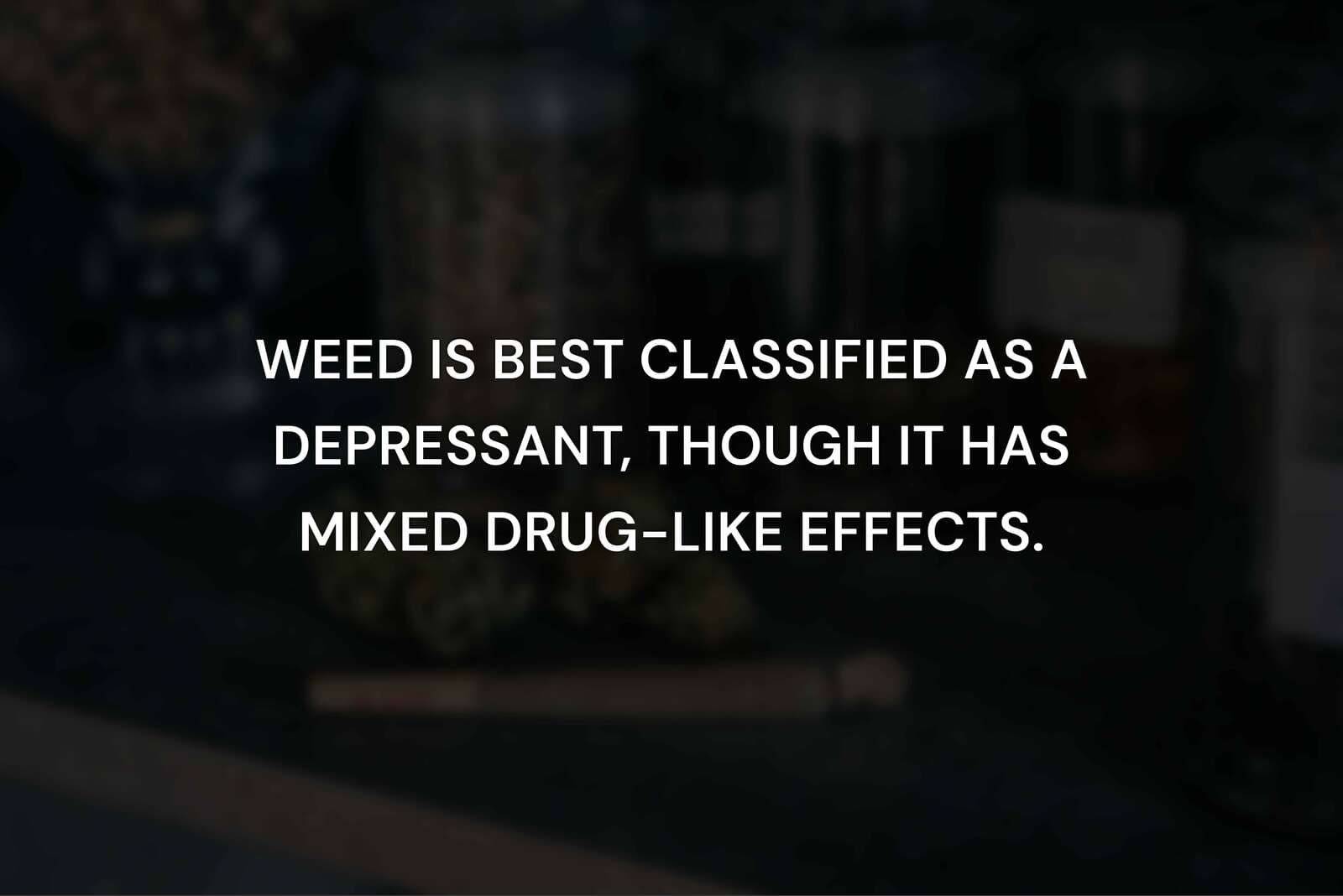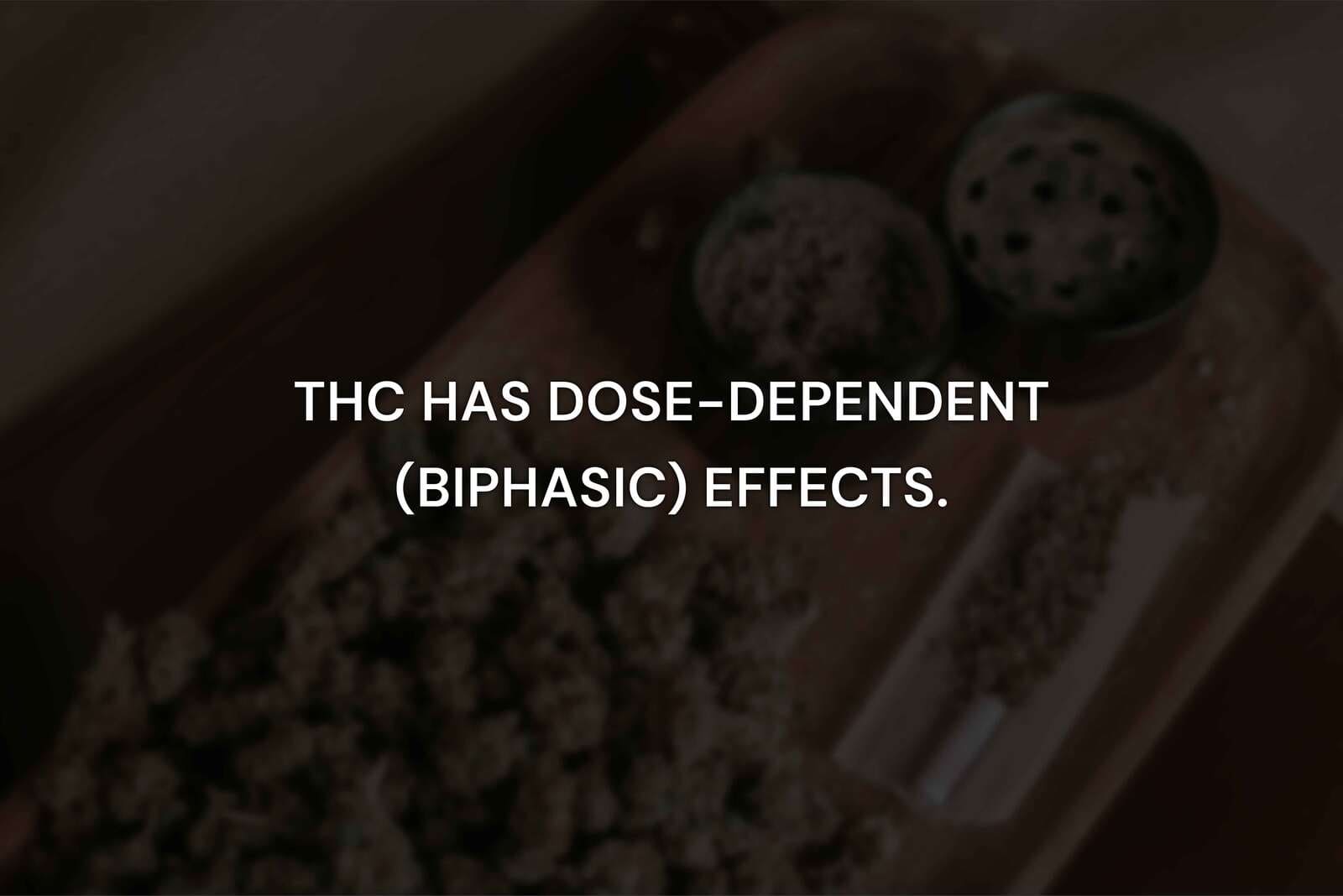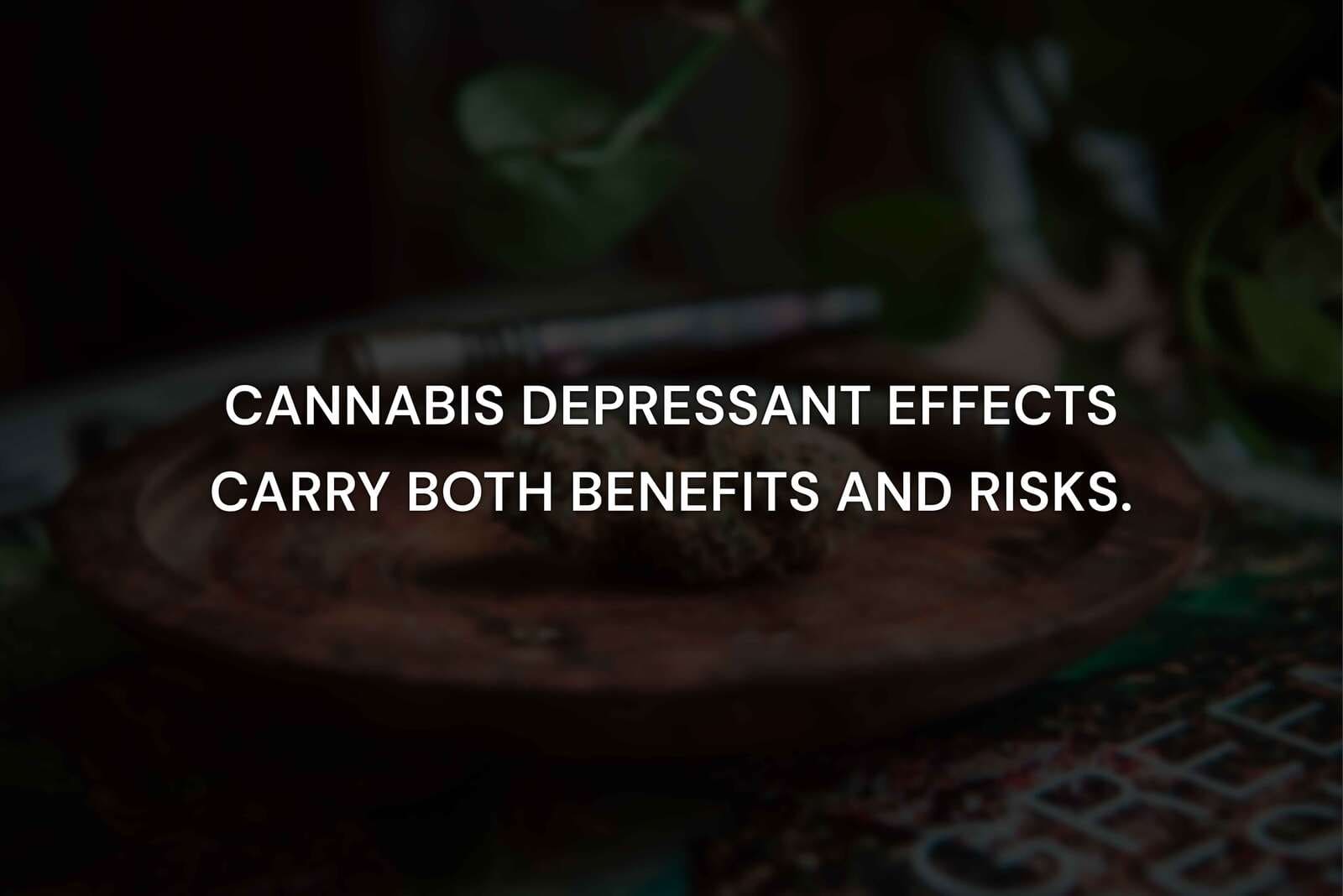Yes, weed is primarily considered a depressant, but it also displays characteristics of stimulants and hallucinogens depending on the strain, dosage, and individual response. The depressant classification comes from its ability to slow down brain activity and the central nervous system, which leads to sedative effects, relaxation, and reduced anxiety for many users.

What Makes Weed a Depressant?
Depressants are substances that reduce stimulation in the brain and produce calming effects. Cannabis, especially strains high in THC, interacts with CB1 receptors in the brain to slow neural activity. This can lead to effects such as:
- Muscle relaxation
- Drowsiness
- Slowed reaction time
- Temporary memory lapses
These traits align with classic depressant effects, similar to substances like alcohol or benzodiazepines. This is why cannabis is often used to promote sleep, relieve anxiety, and reduce pain.
Why the Confusion About Classification?
Cannabis doesn’t fit neatly into a single drug category. It’s classified based on effects, not just chemical structure. Depending on the user and context, weed can act as:
- A depressant: Calms the body and mind, especially in indica strains
- A stimulant: Elevates heart rate and mood in smaller doses or sativa strains
- A hallucinogen: Alters perception and time awareness, particularly at high doses
This mixed classification can lead to conflicting user experiences. One person may feel calm and sleepy, while another becomes talkative and energized after using the same strain.
How Does THC Influence These Effects?
THC, the main psychoactive compound in cannabis, is responsible for most of the drug’s effects. In lower doses, THC may produce stimulating effects like mild euphoria or alertness. In higher doses, or when combined with certain terpenes, it tends to create sedative outcomes.
THC’s biphasic nature means it can have opposite effects at different doses. For example:
- A 5mg dose may boost creativity and sociability
- A 20mg dose may lead to couch-lock, anxiety, or drowsiness
The dosage, delivery method, and tolerance level all affect how THC behaves in the body.

What Role Does CBD Play?
CBD (cannabidiol), another key cannabinoid, is non-psychoactive and consistently acts more like a depressant. It doesn’t create a high, but it:
- Reduces anxiety
- Supports sleep
- Relaxes muscles
- Lowers inflammation
CBD is often used in medical settings because it lacks the stimulating or hallucinogenic effects associated with THC. Many people choose CBD-only or CBD-dominant products for a gentler experience.
Are There Risks With Depressant Effects?
While the sedative effects of cannabis can be helpful, they may also lead to challenges such as:
- Impaired coordination
- Slowed reaction time
- Difficulty concentrating
- Daytime drowsiness
In higher doses, especially for new users, cannabis can cause confusion, anxiety, or paranoia. Driving or operating machinery while under the influence is dangerous, even if the effects feel mild.
People prone to depression should also use cannabis cautiously. In some cases, overuse can reduce motivation and worsen mood long term.

What Does Research Say?
Several studies confirm cannabis’s role as a central nervous system depressant. A 2022 review published in Frontiers in Psychiatry found that cannabis, particularly THC-rich strains, suppresses arousal-related brain activity. This supports its use in treating insomnia and anxiety, but also reinforces the need for controlled, intentional use.
In medical cannabis programs, physicians often recommend cannabis for conditions where depressant effects are beneficial, such as seizures, chronic pain, or PTSD.
How to Manage Effects Safely
If you’re using cannabis and want to avoid unwanted sedation or overstimulation:
- Choose strains with balanced THC and CBD
- Avoid high-THC products if you’re sensitive to depressant effects
- Use lower doses and track how your body responds
- Avoid combining cannabis with other depressants like alcohol or sleep medications
Cannabis affects everyone differently, so understanding your own response is essential for safe use.
Final Thoughts
Weed is best classified as a depressant because of its calming, sedative effects on the brain and body. However, its dual nature means it can also stimulate or alter perception depending on context. Whether used medically or recreationally, understanding these effects helps users make informed decisions and avoid unwanted outcomes. For those seeking relaxation, pain relief, or better sleep, cannabis’s depressant properties offer real value when used wisely.